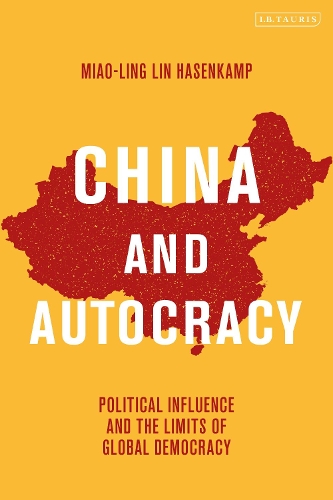
China and Autocracy: Political Influence and the Limits of Global Democracy
(Paperback)
Available Formats
Publishing Details
China and Autocracy: Political Influence and the Limits of Global Democracy
By (Author) Miao-ling Lin Hasenkamp
Bloomsbury Publishing PLC
I.B. Tauris
18th November 2021
United Kingdom
Classifications
Tertiary Education
Non Fiction
International relations
Economic growth
320.4510905
Physical Properties
Paperback
240
Width 156mm, Height 234mm
340g
Description
What effect is Chinas successful autocracy having on global politics Is it leading to the decline of democracy, and the rise of strong man government worldwide Chinas success economically, this collection argues, is undermining the post-war consensus that liberal democracy is best. In a multi-polar, Chinese-dominated world, Trump, Putin, Erdogan, and other global leaders no longer criticize China. In fact, they frequently invoke the usefulness of strong and united leadership. At the same time, China seeks to wear the mantle of a great power, and in doing so talks about human rights, climate change, freedom and economic liberalism. This collection examines how China views itself and where reality meets rhetoric on trade, international relations, diplomacy, economics and social policy. The contributors expertly dissect Chinas autocracy, and show how a ripple effect is altering the political-model consensus around the world.
Reviews
At a time when conditions in China appear ever more circumscribed and Chinas global engagement is ever more intense, this ground-breaking multi-disciplinary study on Chinese authoritarianism in all its different forms helps make sense of what the PRCs political system means for domestic governance and the Chinese people, and what it means for Chinese foreign relations and the rest of the world. * Dr. Jonathan Sullivan, University of Nottingham, UK *
A wide ranging discussion, from a diverse group of authors, of one of the most pressing issues in geopolitics today - what the Chinese model of governance might be, and how it might offer competition to liberal democracies. Taking case studies from domestic issues like anti-corruption management to provincial leadership and propaganda, and international ones such as China's engagement with Africa, this study shows that there are no straight forward answers, and that a variety of theoretical approaches need to be used to understand not only what a Chinese model might be, but whether it really has potency and relevance beyond the borders of China itself. * Professor Kerry Brown, Director of the Lau China Institute, King's College London, UK *
Author Bio
Miao-ling Lin Hasenkamp is Research Associate at Otto von Guericke University in Magdeburg, Germany. She received her PhD in political science, economic policies and sociology. She was a postdoctoral fellow at Essen-Duisburg University and held a lectureship at the University in Mnster, Germany. She has also held several visiting scholarships at the Chinese Academy of Social Sciences (Beijing), Shanghai Academy of Social Sciences and the Soochow University in Taipei.
